Rabbis in Retirement
Former rabbis from Atlanta congregations share what they’ve been up to since they left the pulpit.
In keeping with the theme of this issue – seniors – we asked about a dozen retired congregational rabbis about their experiences on and off the pulpit. More than half agreed to participate. The questions included how they’ve been occupying their time since leaving the senior rabbi position, what they’ve discovered about being a rabbi, and what advice they have for the community.
The rabbis cross denominations and borders. Some have retired in the past year and others have taken a back seat much longer. Most are still located in Atlanta with one in California and another in Jerusalem. Not surprisingly, the vast majority are still very involved in Jewish communal life, counsel others and continue to teach.
Give rabbis a platform and don’t be surprised if their responses echo the inspiration you recall them vocalizing from the bimah. Some of the common responses detailed touching congregants’ lives and vice versa. Two rabbis said the greatest gift they ever received was their wife saying “yes;” another being called “Zayde;” and a third, a magnifying glass he’s been using more lately. Read on to learn more about your former rabbi and life in retirement.
Rabbi Steven Lebow
Temple Kol Emeth rabbi emeritus
Retired in July
Marietta
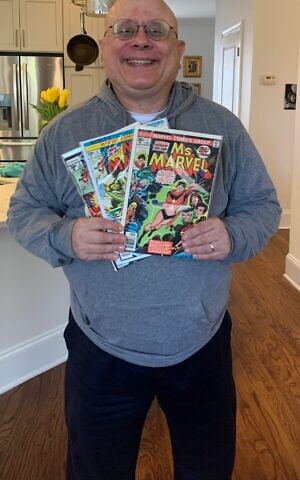
What’s the most interesting or surprising activity you’ve filled your time with during retirement? I retired in July after 40 years as a rabbi and 34 years at Temple Kol Emeth. I take guitar lessons on Tuesdays and karate lessons on Thursdays.
I am writing a graphic novel about a kid who gains mysterious powers the day President [J.F.] Kennedy is assassinated.
I have had a number of my science fiction (and horror) stories published in print and online. I take great pride in my comic book (and action figure) collection. It takes up an entire floor in my four-story townhouse!
I have some very rare comic books: Superman #1, Wonder Woman #1, Green Lantern #1, Flash #1, Fantastic Four and Spiderman #1, etc.
There are still too few rabbis who perform same sex weddings, so I still do a lot of those.
Most importantly, I intend to spend the next 20 years of my retirement seeking exoneration for Leo Frank! Leo Frank was innocent. Clearing his name will be my main “hobby” in retirement.
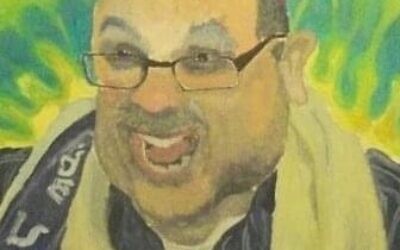
Are you still keeping part-time hours as rabbi or counseling congregants? I officiate at funerals of the unaffiliated who have no rabbi to represent them. I still lead services at two different North Georgia congregations: Rodeph Sholom in Rome and Shalom b’Harim in Gainesville. This makes me the “chief rabbi” of North Georgia! I am still participating at my original congregation – Temple Kol Emeth – by leading Torah study every other week.
What’s the best gift anyone ever gave you? The greatest gift I ever got was when my wife said “yes” to marrying me!
Rabbi Shalom Lewis
Congregation Etz Chaim rabbi emeritus
Retired in June
Marietta
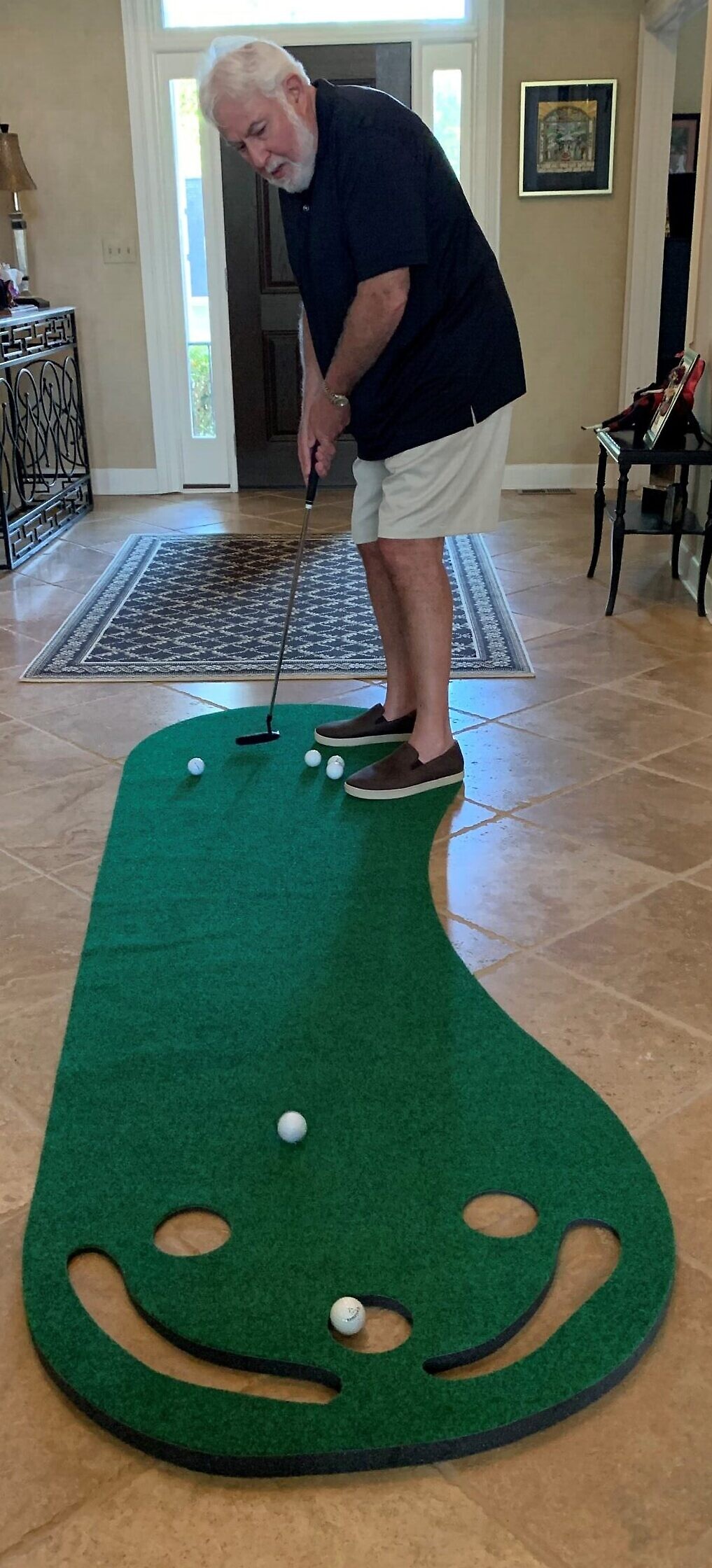
How you fill your time: When one considers retirement after decades of being on call, there is a concern of “How will I fill my days?” As it turns out, even without a time clock to punch, the hours fly by, the days fill up and the weeks pass with startling speed. Now in retirement the activities are plentiful, though not entirely rabbinic in nature. What for decades has been put off finally can be pursued with a more flexible schedule. Let me state for the record, however, that in our prime “All work and no play makes Jack a dull boy,” is sound advice for us all. Even when working, there needs to be balance, and waiting for retirement to start enjoying life is folly and foolish. That being said, there are a number of undertakings that I now have the time to pursue. I am taking up golf and have discovered the true meaning of frustration and have cultivated a new vocabulary that is not bimah-friendly. I have a handicap of 613, which I am hoping in time to improve. I am setting up a website that will contain many of my sermons and blogs, as well as serve as a platform for me to share my thoughts on issues of the day. I am doing a lot of writing. Assorted poetry. A book with original essays on theology. Songs and children’s stories. A collection of personal anecdotes on famous folks I have met, from lunch with Michael Landon to an abortion debate with Newt Gingrich.
Additionally, in time I hope to set up my HO trains and build a new layout as well as take art lessons. Would love to learn how to paint.
Rabbinic counsel: Though emeritus and officially retired, I still have an office and help out Rabbi [Daniel] Dorsch in any way that I can. The relationship I have established with my congregation is not based on a contract. It is based on genuine affection, respect and care. I did not move away, am still a part of the shul and happily interact with the members. Many of us have grown up together. Their simchas are my simchas and their losses are my losses. One of the most prideful things I can share is having named a baby girl and officiated at all her life cycles including the b’nai mitzvah of her children. I look back over a long career and that brings me abundant joy. I’m in my office several days a week though no official hours. I still make appointments. Counsel. Teach. Participate in life cycle events. Attend minyan and Shabbos services. And pre-COVID, would visit the ill and the bereaved. I continue to do what I love for those that I love.
What’s the most eye-opening aspect of being a rabbi you’ve discovered? There are many revelatory moments that a rabbi experiences over the years. Some bring happiness; some bring disappointment. Some are unanticipated; others expected. But let me share a few thoughts that I take with me after more than four decades in the same shul and in the same community. I have come to understand the power of my words and the importance of my deeds. I have come to understand that a rabbi must blend ego with humility to be effective and figuring out the sweet spot is a daily challenge. I have come to understand the responsibility a rabbi has and there is no place for cowardice on the bimah. I have come to realize that every human being is created in God’s image, is holy and is to be treated with respect. I have come to realize that success in the rabbinate demands a sense of humor.
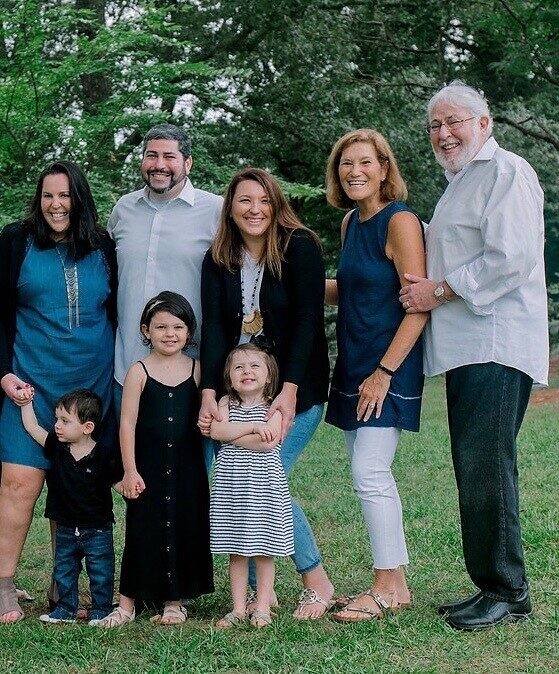
And finally, when we get up in the morning, we have a choice to enter the new day with hope and a smile or with a scowl and despair. I have always gone with the hope and with the smile.
Gift: I’ve received many wonderful, generous and thoughtful gifts over the years from congregants. Abby Road with my head atop Ringo’s body. A cruise. Art. Judaica. But by far, the best gift ever given me has been my three grandchildren. And the best name I have ever had is Zayde.
What advice/words of wisdom would you like to share with the community? I’ve had over 40 years to share my thoughts, but at this juncture I would say respect the flight of time and do not procrastinate enjoying life. Celebrate the magnificence of Judaism. Its rituals. Its wisdom. Its literature. Its theology. Be a proud, knowledgeable, unapologetic Jew. I would also remind us to treasure freedom. Treasure family and friends. Treasure America and Israel. I would conclude with the stunning, timeless words of the prophet Mica … to act justly, to love mercy and to walk humbly with God.
Rabbi Harvey J. Winokur
Temple Kehillat Chaim rabbi emeritus
Retired in July 2018
Roswell
How you fill your time: Before I retired, I became a facilitator and trainer for The Mussar Institute. I have thoroughly enjoyed the freedom to facilitate multiple Mussar vaads (spiritual groups). I am also on the Development Council for the institute.
Rabbinic counsel: I do not keep part-time hours at the temple. I have taught some online classes for members.
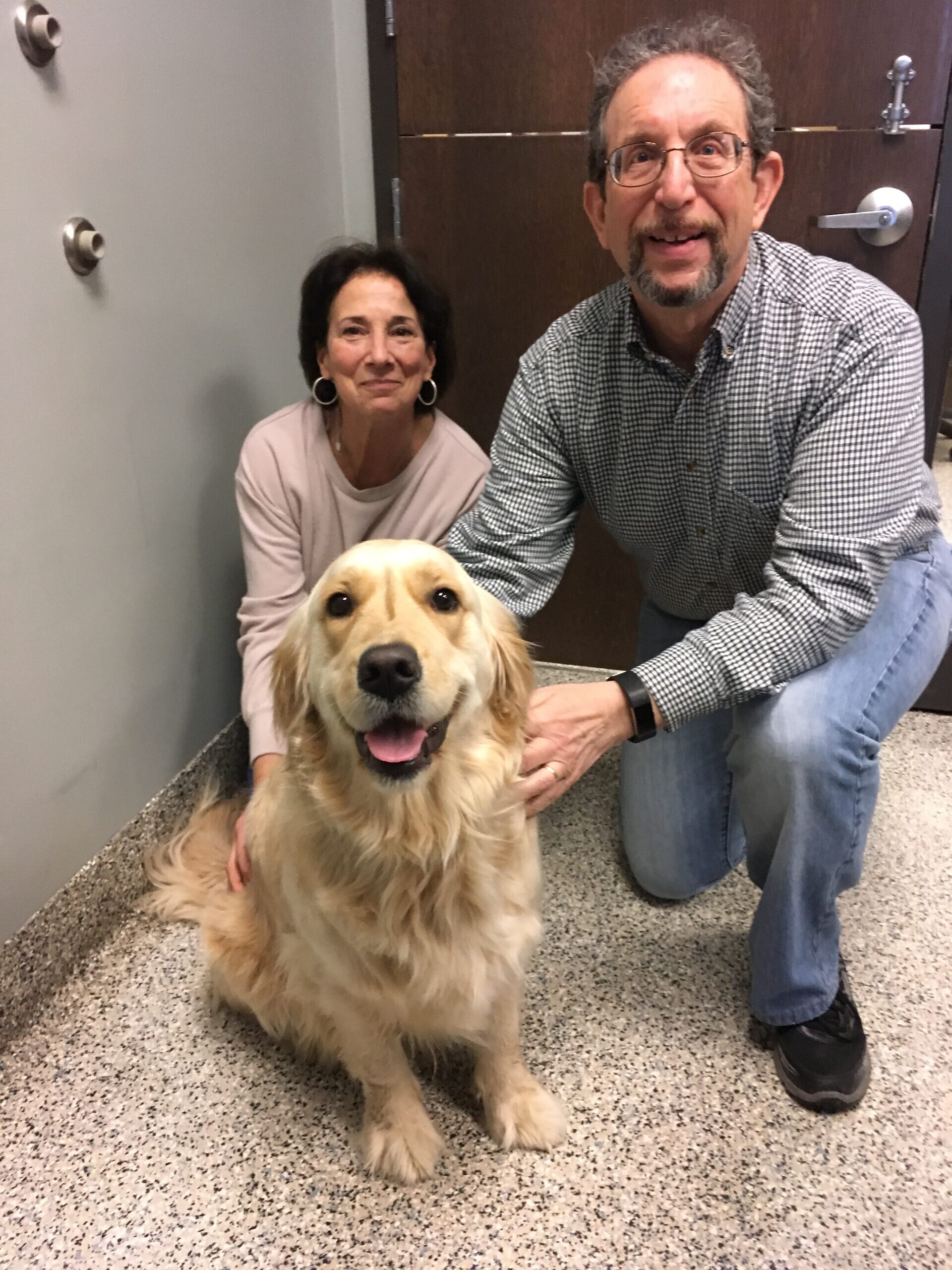
Eye-opener: Through my 42-year career as a pulpit rabbi, I strived to treat everyone (members and unaffiliated) with care and concern and tried not be judgmental. I was gratified when individuals were willing to open up to me about deeply personal matters.
Gift: Size doesn’t matter. Being the rabbi of a 100-family temple is just as important and meaningful as is being the rabbi of a 1,000-family congregation. Sure, there are certain financial perks, but it is more important to consider your family and your mental health.
Advice: Don’t ignore the spiritual component of being Jewish. Spirituality is not only about whether or not or how firmly you believe in God. It is the glue which connects the soul to rituals and ethical behavior. Judaism offers many paths to explore the spirit. The sooner you enter the path, the more rewarding the journey.
Rabbi Phil Kranz
Temple Sinai rabbi emeritus
Retired 14 Years
Sandy Springs
How you fill your time: I came to Atlanta in 1980 and retired in 2006. I certainly planned to continue to teach, but I never expected to teach classes using the Zoom format. The pandemic brought about many departures from normality; Zoom was one of them. The technology scared me at first. Now I can say that I genuinely enjoy teaching virtually. Being able to stay in one spot is a dividend for an old, retired rabbi!
Rabbinic counsel: I am at Temple Sinai quite often. I am still in charge of collection-building at the Rabbi Philip N. Kranz Learning Center’s large Judaica library. I leave the counseling to the current staff of rabbis and cantor. In fact, at this stage in my life, the professional staff now counsels me.
Eye-opener: I guess by “eye-opening” you are referring to something in the rabbinate which I did not expect but, when I discovered it, I was pleased. One of the things that attracted me to the Reform rabbinate, almost 60 years ago, was the expectation that, while serving as a congregational rabbi, I would be able to do all different sorts of interesting things: teaching, counseling, Jewish communal affairs, working within the general community, writing, preaching, leading worship, and a variety of other activities. This was an expectation I had, and it all came to pass and proved to be accurate. It is one aspect of the rabbinate which I deeply treasured.
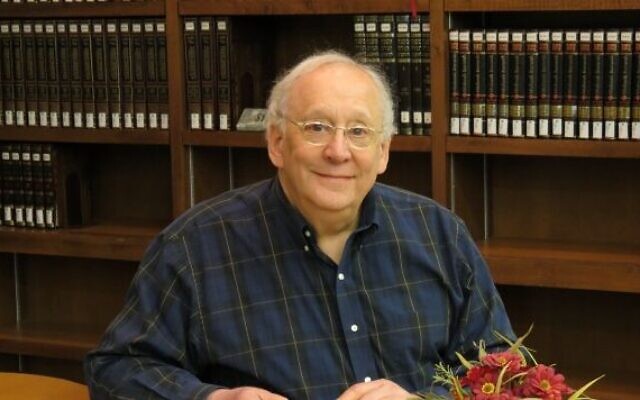
Gift: When I first came to Atlanta and Temple Sinai, a congregant presented me a large brass stand with a huge magnifying glass attached. “What a silly gift,” I thought at the time and now, with stronger eyeglass prescriptions each year, the magnifier is a godsend. The older I become, the Hebrew and Aramaic texts seem to get smaller and smaller.
Advice: We need to realize and appreciate the fact that we live in a Jewish community that is richly blessed in material and human resources. Simply having those, however, is not enough. We must utilize them so that we become more intellectually informed, more spiritually enriched, and ever more committed to applying Jewish values to our lives.
You might be interested in knowing that on June 5 of next year, Rabbi Alvin Sugarman and I, seminary classmates, will mark the 50th anniversary of our ordination.
Rabbi Stanley Davids
Temple Emanu-El rabbi emeritus
Retired 16 years
Lives in Santa Monica, Calif.
How you fill your time: We had been dreaming of making aliyah for most of our married life. This shared dream was constantly deferred because of the needs and demands of both of our careers and by our involvement with two generations of our families. When I retired from the active rabbinate in 2004, the path was suddenly clear.
We arrived in Jerusalem with an agenda that quickly became very demanding. I was already chairman of the Association of Reform Zionists of America, so in a very brief period of time, I found myself elected to the Board of Governors of the Jewish Agency for Israel and as a senior executive of the World Zionist Organization [positions held for 12 years]. Both positions involved a great deal of hands-on activity: negotiations; committees; public functions; meetings throughout the country. I was given secure parking privileges at the Jewish Agency, at the Hebrew Union College, and at the Knesset, but we never did buy a car while we lived in Israel (10 years)! I had been an active supporter of Israel and of liberal Zionism throughout my adult life, but now I was given the opportunity to make a hands-on difference.
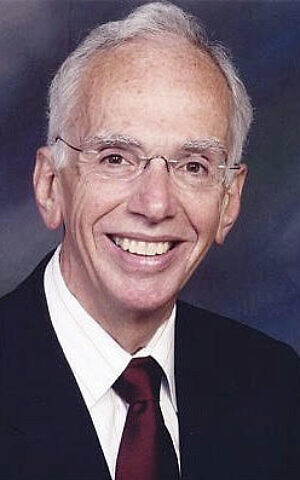
At HUC, I was elected to the Board of Overseers and had an amazingly rich and satisfying opportunity to mentor our rabbinic and cantorial students. At the same time, Resa, who had been elected to the international board of the Women of Reform Judaism, traveled throughout Israel and established 23 synagogue-based affiliates of WRJ.
Rabbinic counsel: We established ourselves in Santa Monica in 2014. I immediately was invited to teach adult education classes in several congregations, and I was elected to the Board of Overseers to the LA campus of HUC. My Saturday morning Hevra Torah class has not missed a session since then. I also have a large following for my weekly Torah teaching on Facebook. The members of that class and of that FB community have become a family, and in many ways, I serve not just as their teacher and study partner, but as someone with whom the adult students have formed close ties. There have been many occasions in which I have served as a counselor, a mediator, a private resource of support. There is no remuneration for this, just gifts of love and community. At the same time, I remain very close with members of my Atlanta congregation; with the full approval of my successor, I have been involved in many lifecycle events, private counseling, and enduring friendships. I have never been busier.
Eye-opener: The number of lives I have been privileged to touch. I never kept a spreadsheet of the one-on-one contacts I have made. There is no Excel document that could possibly reflect the impact of all of the ritual and life cycle ceremonies that I have conducted, the private counseling that I have engaged in, the work with teens and college students that has created meaningful connections that remain joyously strong to this day. Rarely is there something comparable to immediate gratification connected to a rabbi’s sacred tasks. One finds out a year later, a decade later, or almost a lifetime later that something that I did or said or taught actually made a positive difference in someone’s life. But those moments when someone says: “Stan, 15 years ago I was a lost, confused teen and you were there for me…” they are wondrous. Such events more than compensate for whatever time and concern and soul energy that I had invested. What a privilege.
Gift: The most obvious and enduring gift I ever received was when Resa said “YES” when I asked her to marry me. No other gift comes close. The love and respect and friendship of our kids and grandchildren are precious beyond words. (We are blessed with three children and eight grandchildren, one a student at Georgia Tech!)
But there were different kinds of gifts, gifts that have had a profound impact upon me. Here’s one: In October of this year, I was asked to deliver a eulogy at the funeral of one of our closest friends (and a past president of Temple Emanu-El) Stew Aaron. In 1994, I was desperately ill. Following surgery at Sloan Kettering [Cancer Center] in New York City, the news was overwhelmingly negative. There was little reason to hope.
Stew called from Atlanta. There was a matter of great concern that the synagogue board had to resolve, so I should expect to see Stew in a couple of days. Sure enough, Stew showed up in my hospital room with members of the Emanu-El executive committee. After brief greetings, the matter was raised and thoroughly discussed. Stew and his committee then returned immediately to Atlanta. The gift? Priceless. They had reminded me that I had a place in their lives, that I was needed, that I had a job to do. They lifted me out of my self-absorption and focused my mind on the future. Gemilut Chesed. An act of pure love. The day of that meeting was the day that I began to believe that recovery might still be possible. By the way, many years later I discovered that the board had already resolved the matter. Which only made the gift even more precious.
Advice: I’ve been around too long to believe that the community needs any of my wisdom. Check out Ecclesiastes if you want to contemplate whether someone else’s wisdom has any lasting value. I love Atlanta, and I love my congregation. Over 81 years and counting, my values have become more certain and less complicated. Family. Friends. My unwavering conviction that the Jewish people must be strengthened because it still has so many gifts to convey to our world. Other people bring their own precious gifts, but no one brings our 3,500-year story as to how to seek and find meaning and purpose in life. We bring Torah. We bring the State of Israel. We bring memory and we bring dreams. We bring our prayers.
Rabbi Arnold Goodman
Ahavath Achim Synagogue senior
rabbinic scholar
Retired 18 Years
Jerusalem, Israel
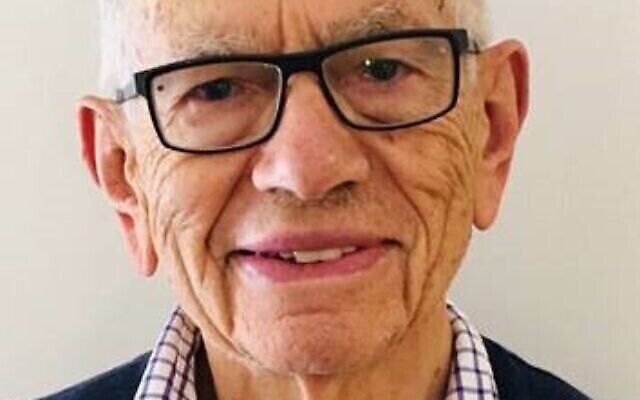
How you fill your time: Many years before our retirement, my wife Rae, of blessed memory, and I had decided that when we reached that day, we would realize our dream to relocate to Jerusalem. Our eldest child had made aliyah after graduating from high school, and we were happily welcomed by him, his wife and their six children.
One of my goals was to deepen my knowledge of Talmud and Hebrew with a study partner who did not speak English. Shortly after my arrival I was introduced to Rabbi Shimon Hadad, who was born and raised in Tiberias and is not an English speaker. We study two to three times a week, and our discussions are solely in Hebrew. I have happily increased my knowledge of Jewish sources, and also immeasurably improved my Hebrew.
I have many colleagues in Israel, and we were immediately included in various social groups. The year following our arrival, Rae suggested that we host a Purim masquerade party, and this annual celebrating the joy of Purim continued for 15 years.
Rabbinic counsel: Having relocated to Israel, I do not maintain an office at Ahavath Achim. I have, however, remained in contact with many families through a weekly Torah commentary sent out to my distribution list and also included in the synagogue’s weekly e-blast. I always enjoyed the challenge of preparing weekly sermons and was pleased to continue via the internet.
I have also stayed in touch with the congregation by being a scholar at an annual Shabbaton in which I speak and teach Friday night, Saturday and Sunday mornings. Hopefully once the pandemic is over I can resume traveling and once again enjoy this annual visit and the opportunity to see old friends and to meet new congregants.
Eye-opener: The rabbinic job description is fluid. It includes preaching and teaching, but above all, being a pastor. A rabbi’s presence is not only welcome but expected when families are burdened with the grief of bereavement or illness. There is also the joy of sharing in the celebration of significant moments: weddings, baby namings, bar and bat mitzvah and other occasions of joy and festivity. The rabbinate has been a fulfilling career and I am eternally thankful for my half century in the pulpit.
Best gift: Among the most significant gifts is the honest feedback from members of the congregation. There were many letters of gratitude and praise, but there were also the letters of critique that helped me continue to grow and develop my sensitivity to others.
Advice to community: The truth is that each of us is always in the state of becoming, and we can amazingly be better tomorrow than we are today. This is also the challenge facing the American and Atlanta Jewish communities. There are always changes and shifts through which we must constantly respond. Change is often difficult to achieve, but the ultimate challenge is to know when and how to respond to changing environments and shifting priorities. It’s a formidable task because more than we know what we like, we like what we know.
- Senior Living
- Community
- Seniors
- Retirement
- Rabbis
- Rabbi Steven Lebow
- Rabbi Shalom Lewis
- Rabbi Harvey J. Winokur
- Rabbi Phil Kranz
- Rabbi Stanley Davids
- Rabbi Arnold Goodman
- Temple Kol Emeth
- congregation etz chaim
- Temple Kehillat Chaim
- Temple Sinai
- Temple Emanu-El
- Ahavath Achim Synagogue
- Israel
- Roni Robbins
- Atlanta
- Atlanta Jewish Community
- Jerusalem
- Santa Monica
- Sandy Springs
- marietta
- Roswell
- Newt Gingrich



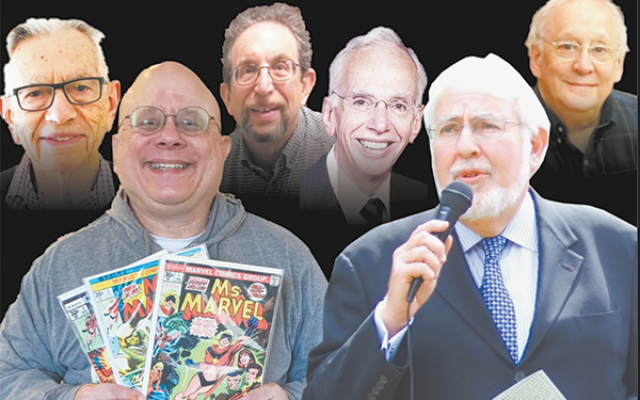
comments